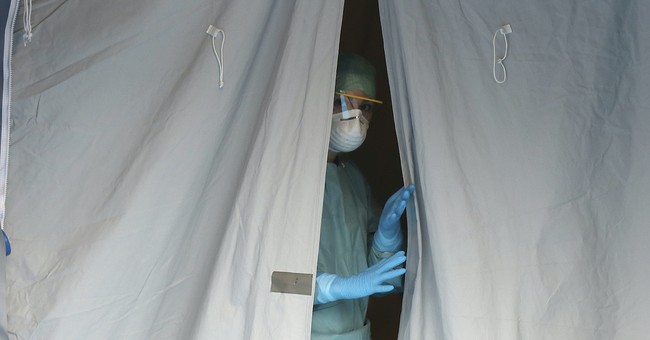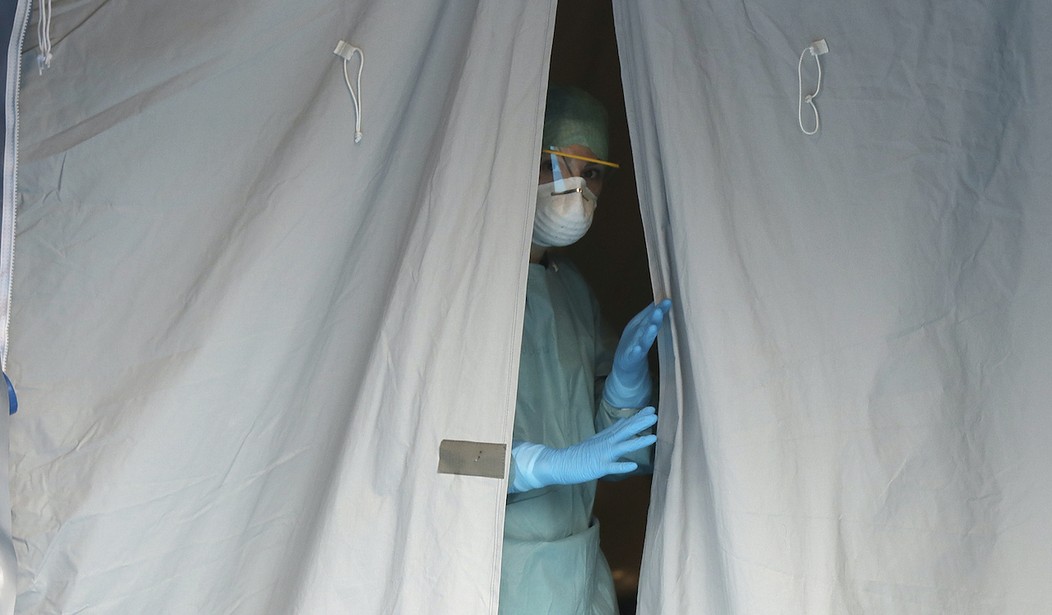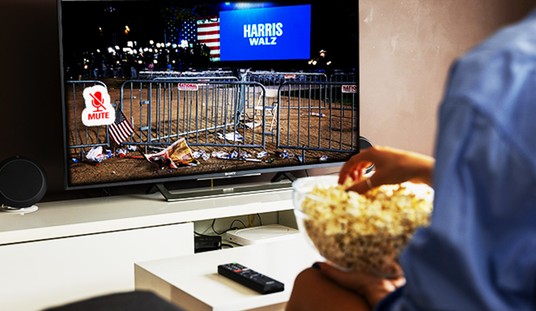
A medical staffer watches from a tent at one of the emergency structures that were set up to ease procedures at the Brescia hospital, northern Italy, Thursday, March 12, 2020. Italians woke up to yet further virus-containment restrictions after Premier Giuseppe Conte ordered restaurants, cafes and retail shops closed after imposing a nationwide lockdown on personal movement. For most people, the new coronavirus causes only mild or moderate symptoms, such as fever and cough. For some, especially older adults and people with existing health problems, it can cause more severe illness, including pneumonia. (AP Photo/Luca Bruno)
I like to people watch, but my kind of people watching is something more than just sitting at a park and watching the community interact with one another. I like to people watch on a much larger scale. I’m more fascinated with watching the reactions by various groups to the situations they’re thrown into.
As everyone but the current crop of Big Brother contestants knows, the Wuhan-born virus from China has changed life as we know it from the way we interact with each other to how our economy works, which is to say hardly at all.
Some interesting things I’ve noticed is that we as a species have lived so comfortably in a safe first-world atmosphere that we don’t know how to deal with something like a global pandemic. That’s not to say there aren’t many of us out there who keep a calm head and react with minds focused on logic and realism, but there are quite a few people out there who are currently anxiety-ridden and ready to do crazy things if it means surviving. These crazy things can range anywhere from buying up all the toilet paper in order to combat a respiratory virus to allowing the government to essentially dictate their lives, trading their God-given freedoms for even a hint of a feeling of safety.
It’s these people that cause others to panic, infecting the populace with something far worse than a virus: stupidity.
If you take a step back and view humanity as an alien would, you’d see our reaction to this virus to be silly but understandably so. Again, many of us haven’t really had to deal with something like this in our lifetimes. We’ve come across pandemics before but rarely have they ever really intruded on our first-world doorstep. We’re in uncharted territory and nothing scares people quite like the unknown.
Could our fears have been made a bit more controlled? Could we have been less afraid?
The answer is an overwhelming yes. As I said, nothing quite scares people like the unknown, but the same can be said for our media, which has done its absolute best to make everything about the Coronavirus apocalyptic.
Let me be clear. I’m not saying that this virus should be dismissed. It can very well be dangerous if the wrong person gets infected. However, I think many would agree with me that these fears of this pandemic have been greatly exaggerated.
A new article releases every minute that spells doom and gloom for our nation or even our world. Reports of infections, experts warning us of worst-case scenarios, death, destruction, mayhem, and more. It’s not that we don’t need to be made aware of this, but the media knows that they have your eyeballs right now and they want very much to keep them. What’s more, they want to use that opportunity to bring you around to their way of thinking. Not a day has gone by where the media hasn’t made this political in some way, shape, or form.
I swear, a world-ending meteor could be barreling down on us and the media would still be pointing fingers at their political opposites.
This all teaches us some interesting lessons that we should really heed.
For one, during times of major crisis, it’s probably a good idea to be very choosey about our information intake, or at the very least, look at it from a logical perspective. An expert may say that there is a risk of something happening, but the risk isn’t a promised outcome. You risk a lot just by turning your car onto a busy road or eating at a restaurant. There’s a risk of getting into an accident or eating something that wasn’t prepared correctly that may cause you to get sick. Hell, today it’s a risk to even tweet anything, like something you thought innocuous may cost you your job because it outraged a group of people.
Don’t imbibe so much information that it causes you to become mentally overwhelmed to the point of stress and fear. Play it smart.
To that end, we’ve learned to be wary of our own media. It has its own interests. Think of it as a bartender that has no regulations or moral obligation to stop you when you’ve had enough. It wants you to keep drinking and drinking and drinking until you’re beyond a complete wreck. The more afraid you are the better it is for them. You think they’re arming you with knowledge, and while that’s partly true, that’s not their goal. Their goal is to make you watch and tell your friends so they watch. They’re a virus in and of themselves that benefit from spreading and infecting as many people as possible.
Tl;Dr: Keep calm and carry on. Live your lives. Go support your local businesses if they’re still open. Wash your hands and keep clean. Buy only what you need and while it’s good to take precautions, don’t go overboard.
Most importantly, turn off the news and do something that doesn’t involve worrying.














